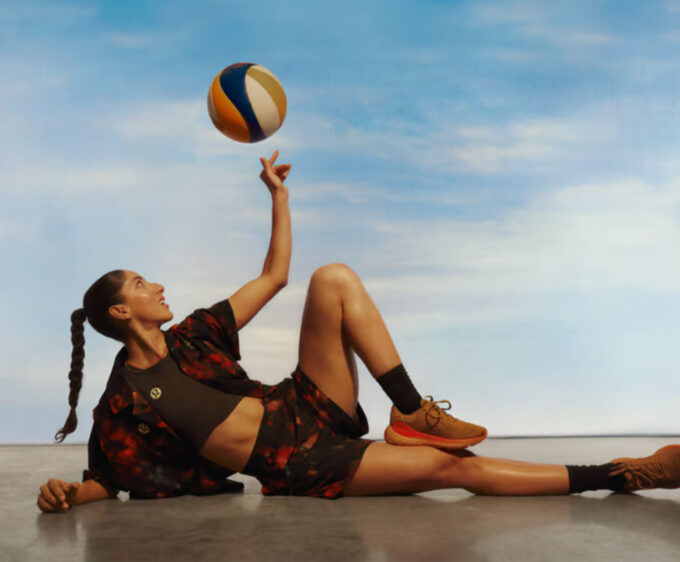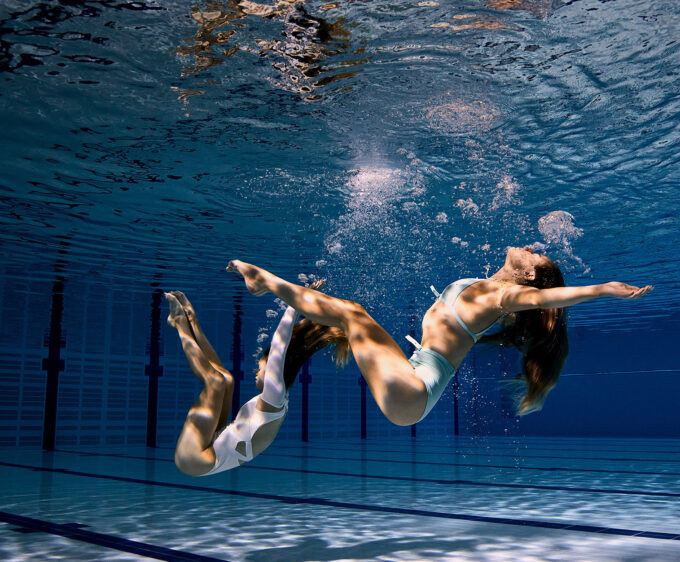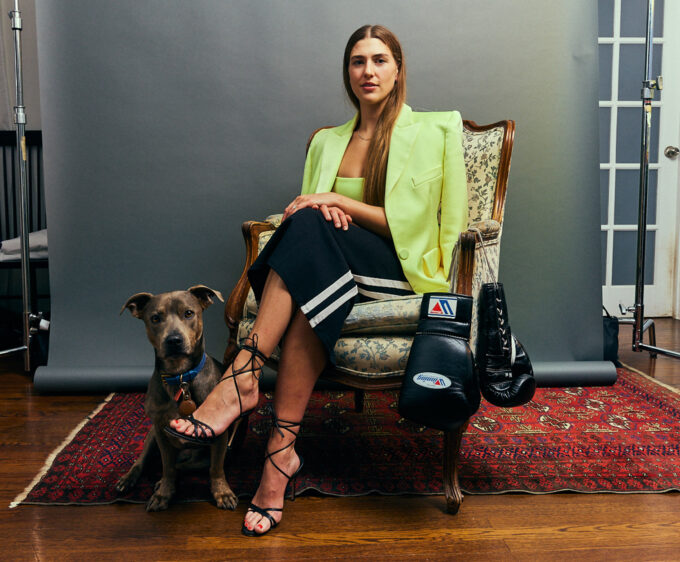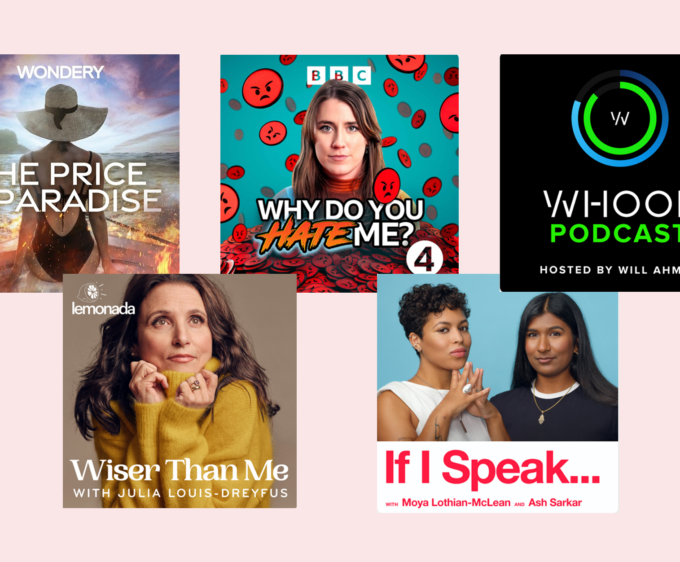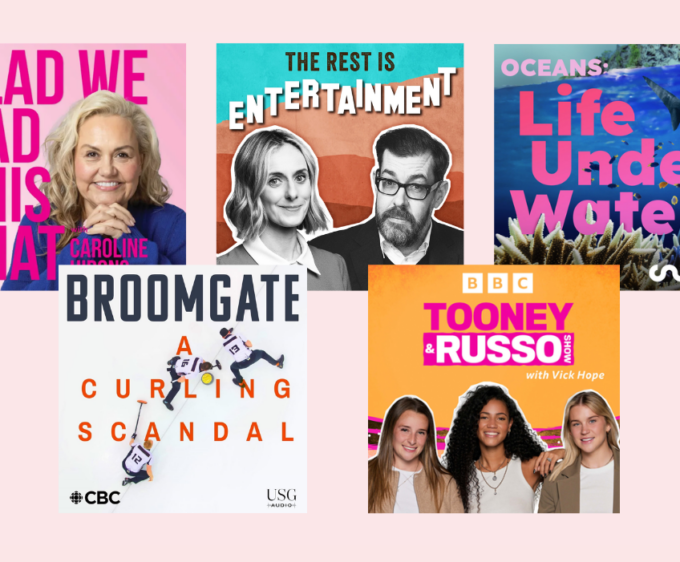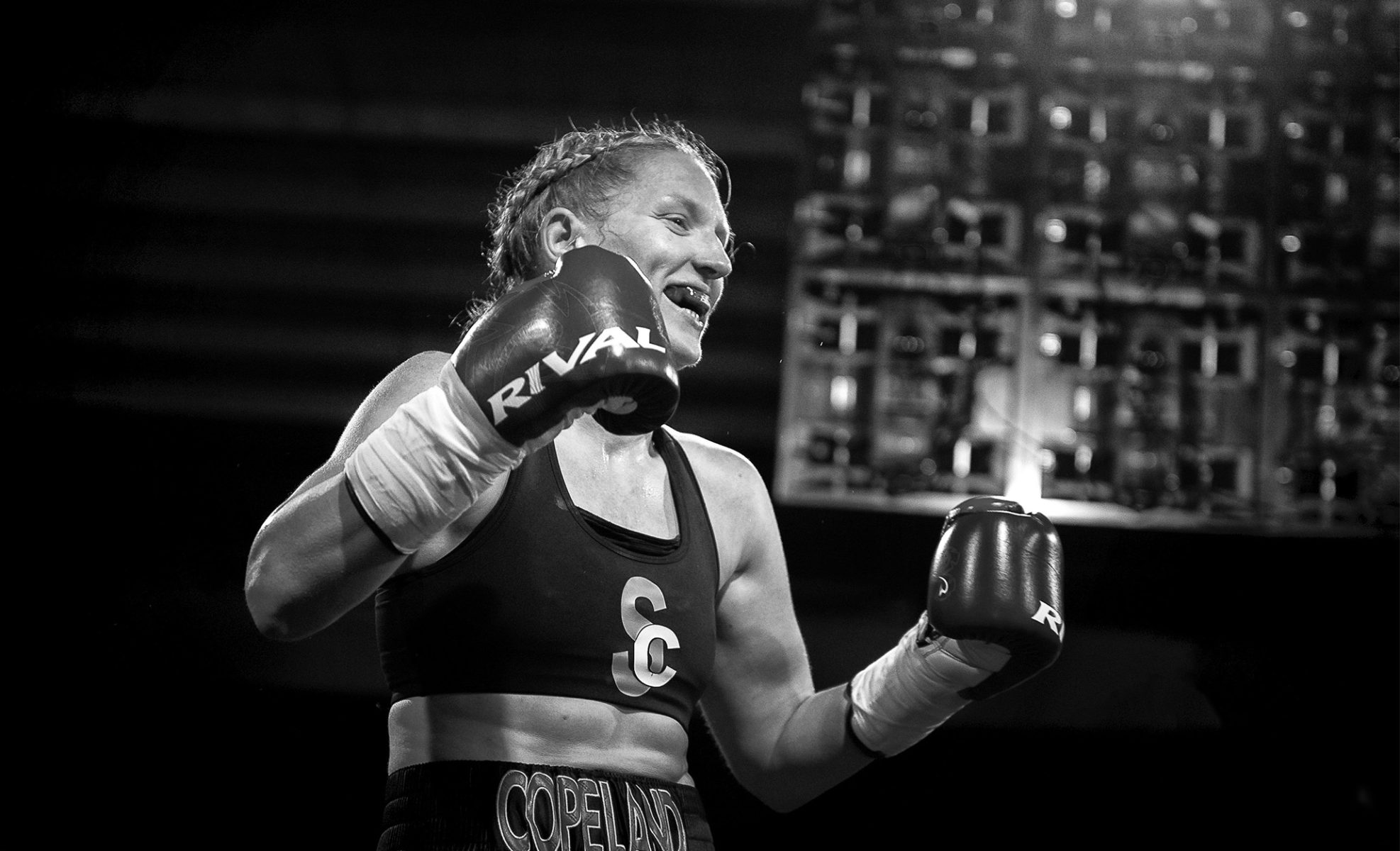
If You Love A Sport, Then Play It
Former professional boxer who’s breaking down gender stereotypes in sport and beyond to ensure a better future for generations to come
By Ella Braidwood
Photography by Nigel Maitland
Perhaps surprisingly, former professional boxer Stacey Copeland’s proudest moment so far is not winning the silver medal at the 2014 European Championships – nor is it bagging the Commonwealth super-welterweight title in 2018, making her the first British woman to do so. Instead, she believes her biggest success lies in empowering others – especially young girls and women – to pursue their dreams, by knocking down the walls of outdated gender stereotypes.
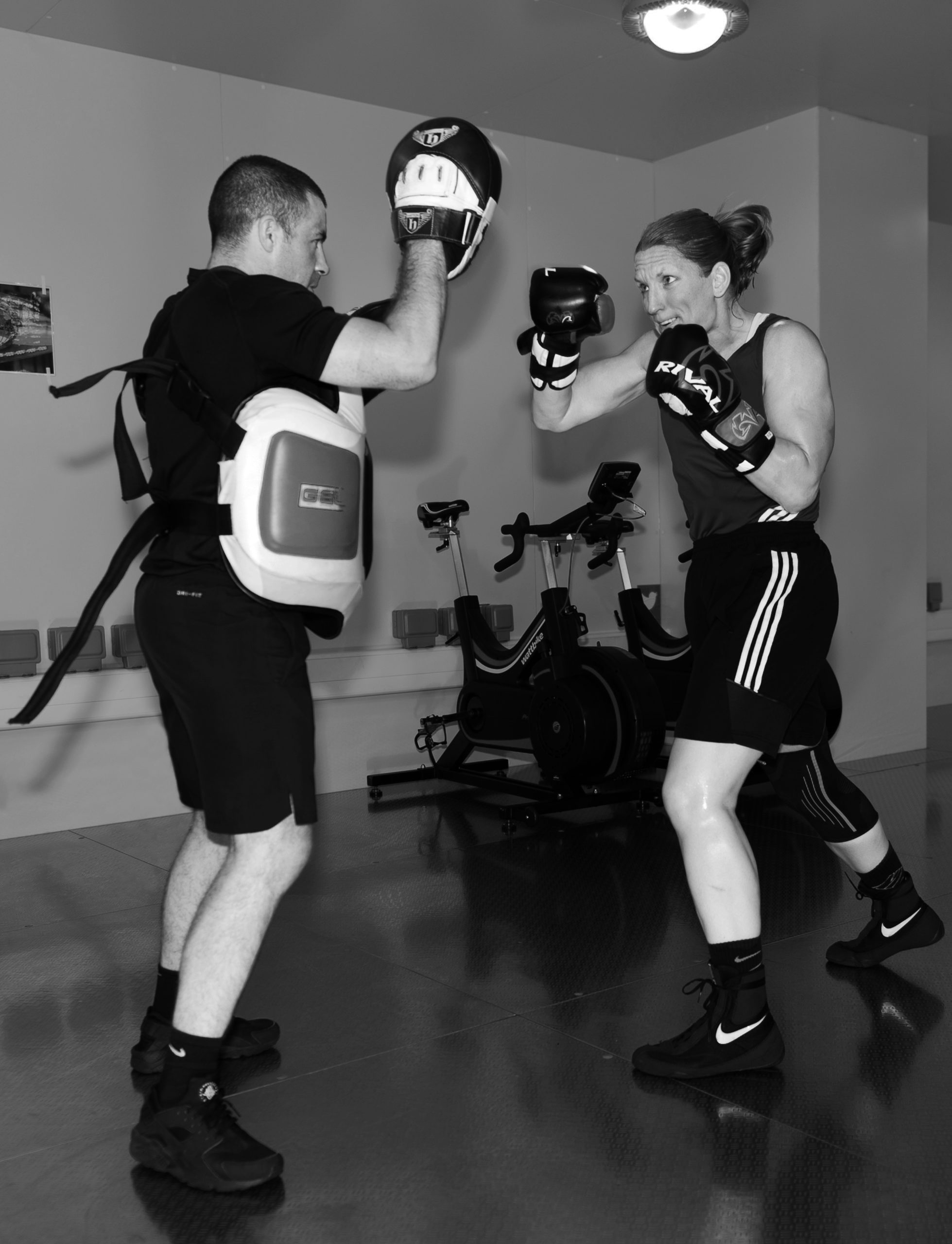
“When I get letters or messages or people come up to me – parents or kids, or whoever – and say, ‘This has really inspired me’, those are the proudest things for me to be honest,” said Stacey. “Winning stuff is great, but to be able to impact people in that way is a massive sense of pride for me.” Throughout our call, Stacey is funny, inspiring and passionate. When she speaks about the future of women’s sport, her excitement is palpable from her voice alone: she talks at breakneck speed, every word spoken with straight to the point Mancunian zeal.
What’s more, her words are echoed by her actions. In 2017, the 39-year-old athlete founded Pave The Way, which is now her main focus. The project, which was registered as a charity earlier this year, campaigns against gender stereotypes in sport and beyond. While Stacey originally set it up to help ensure women and girls don’t face the challenges she did, the initiative has since grown to include men and boys. “There’s a lot of males who face stigma for wanting to follow certain careers or have interest in different sports and hobbies. It should be just as acceptable as it was for me.”
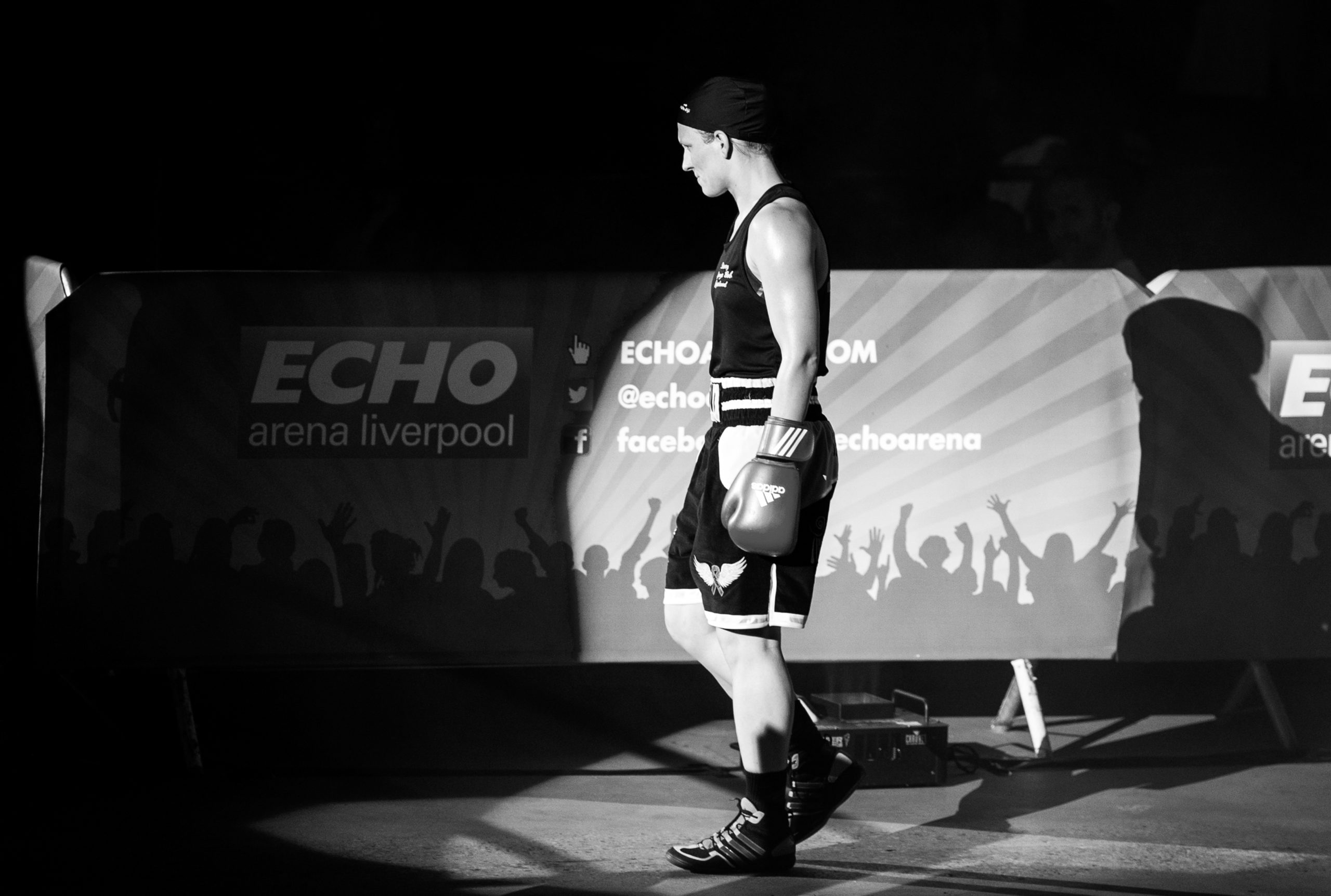
Because, when it comes to personal experience of gender stereotyping, Stacey has plenty of stories of her own. While hard to hear, these also show the staggering progress that women’s sport has made since Stacey’s childhood in the 1980s – progress that Stacey repeatedly describes as “phenomenal”.
Born in London, but growing up in Manchester, from a very early age Stacey loved boxing. It was all she wanted to do. Her father was a boxer and she trained obsessively in a gym run by her grandad, only she couldn’t take part in proper fights.
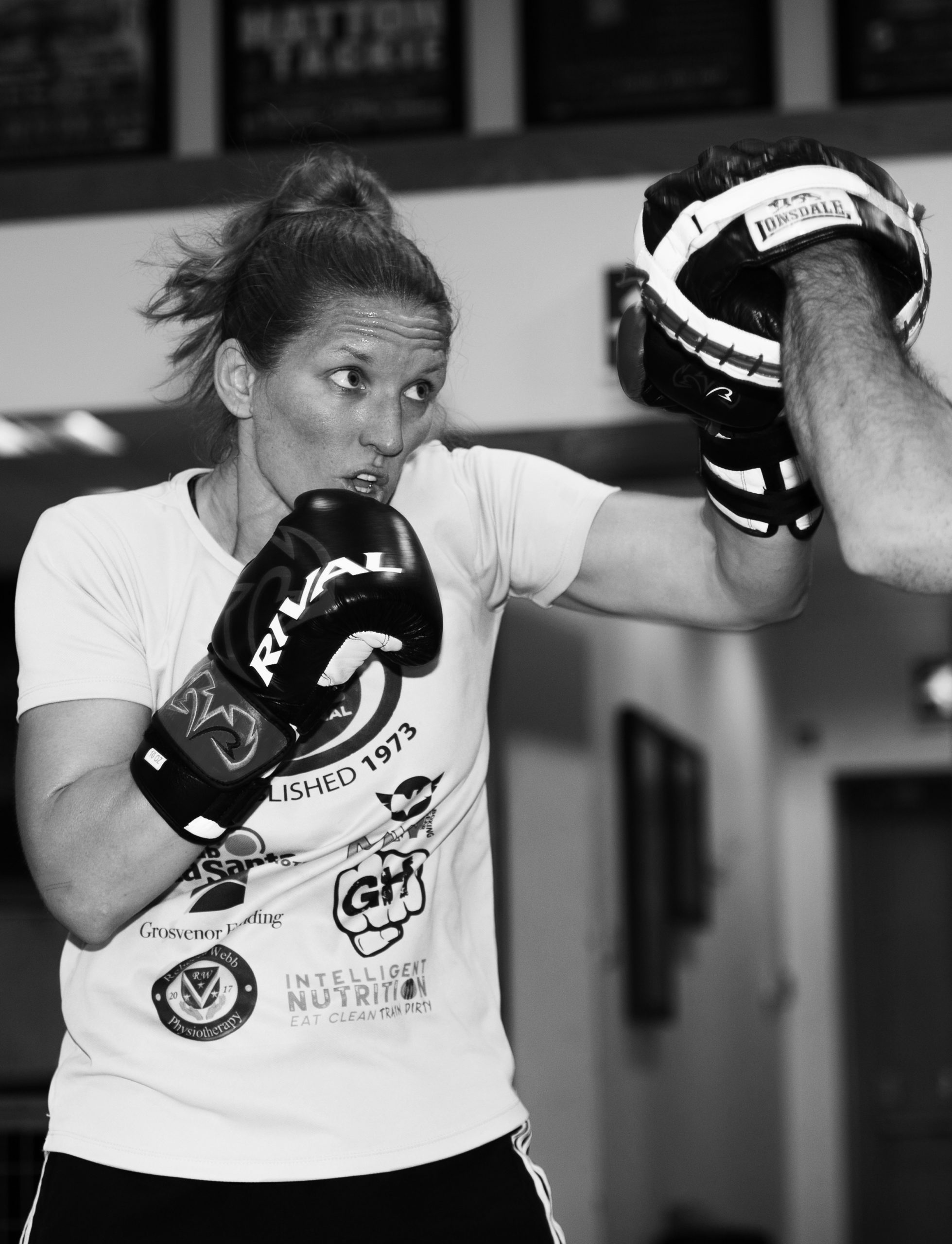
Incredibly, women’s competitive boxing was illegal in England until 1996, when the Amateur Boxing Association of England (now known as England Boxing) lifted its 116-year ban on the sport. Describing herself as a “very driven” child, Stacey searched for another way to channel her competitive urges. So, she turned her talents to another sport: football.
As a young girl, though, there were no all girls’ teams for Stacey to join. Still, always the optimist, Stacey didn’t let that stop her: so, she joined a boys’ team instead. While her family backed her all the way, others weren’t so supportive. During one game, she was made to leave the pitch when the parents and opposition’s coach on the sideline realised she was a girl. “It was a strong message to me as a young girl that I didn’t belong there,” recalled Stacey.
Stacey stresses how much this moment has stayed with her – and why it has pushed her to do what she does with Pave The Way. “That could have been the catalyst for me to not pursue sport. It’s unthinkable to imagine my life without sport in it and everything that it has given me,” she said. “So, to think that other kids are being denied the opportunities that I’ve had because they give up because we still face these stigmas. I just can’t accept that.”
Thankfully, Stacey didn’t give up and quickly climbed up the footballing ranks. She played in top division clubs Tranmere Rovers and Doncaster Belles, even reaching the FA Cup Final with the latter in 2002. At the age of 16, she got the call up for England under 18’s squad. After a stint playing in Sweden, Stacey retired from playing the sport professionally and pursued her dream of boxing, now that it was legal in England. She quickly rose through the ranks, turning pro in 2017.
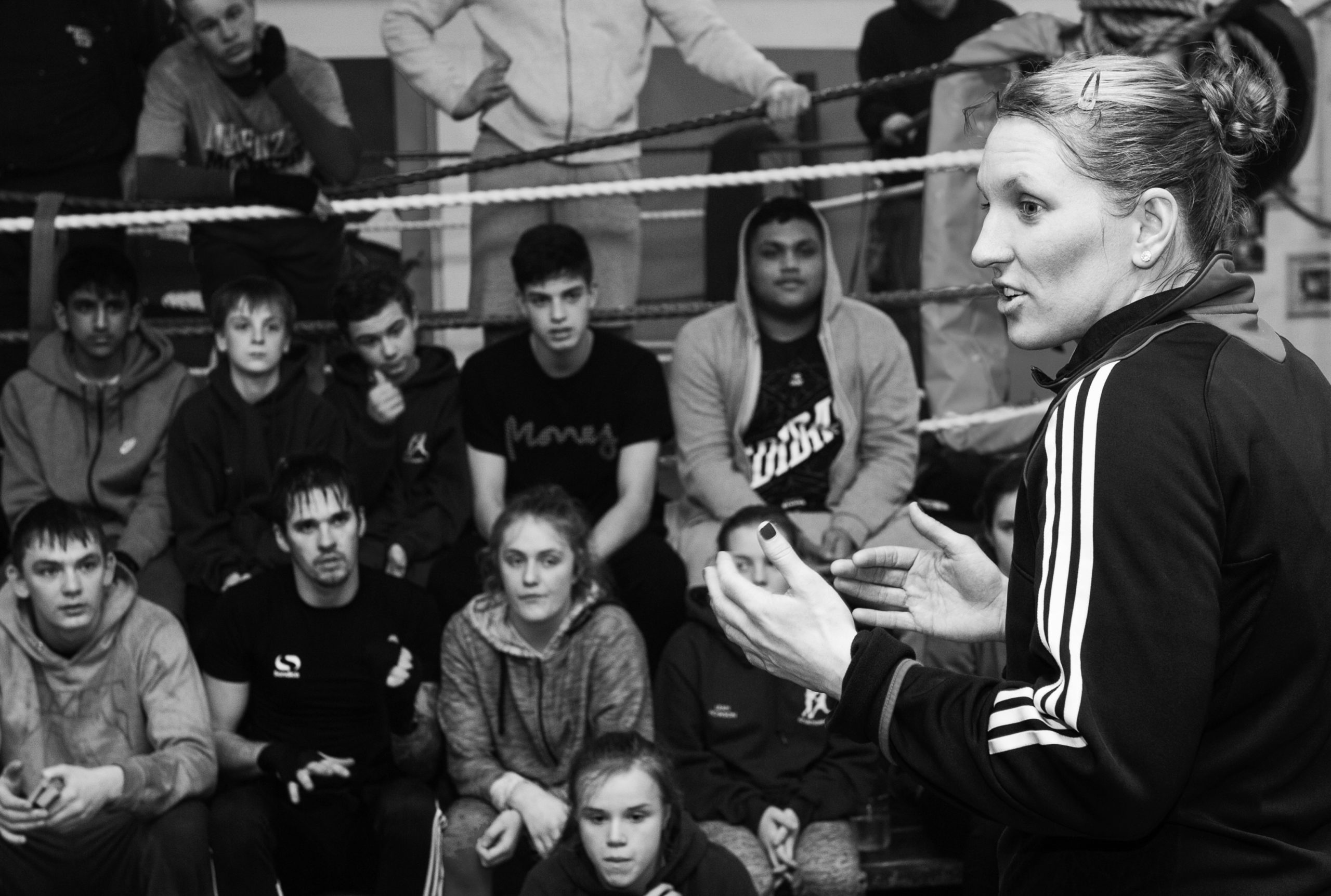
Confidence
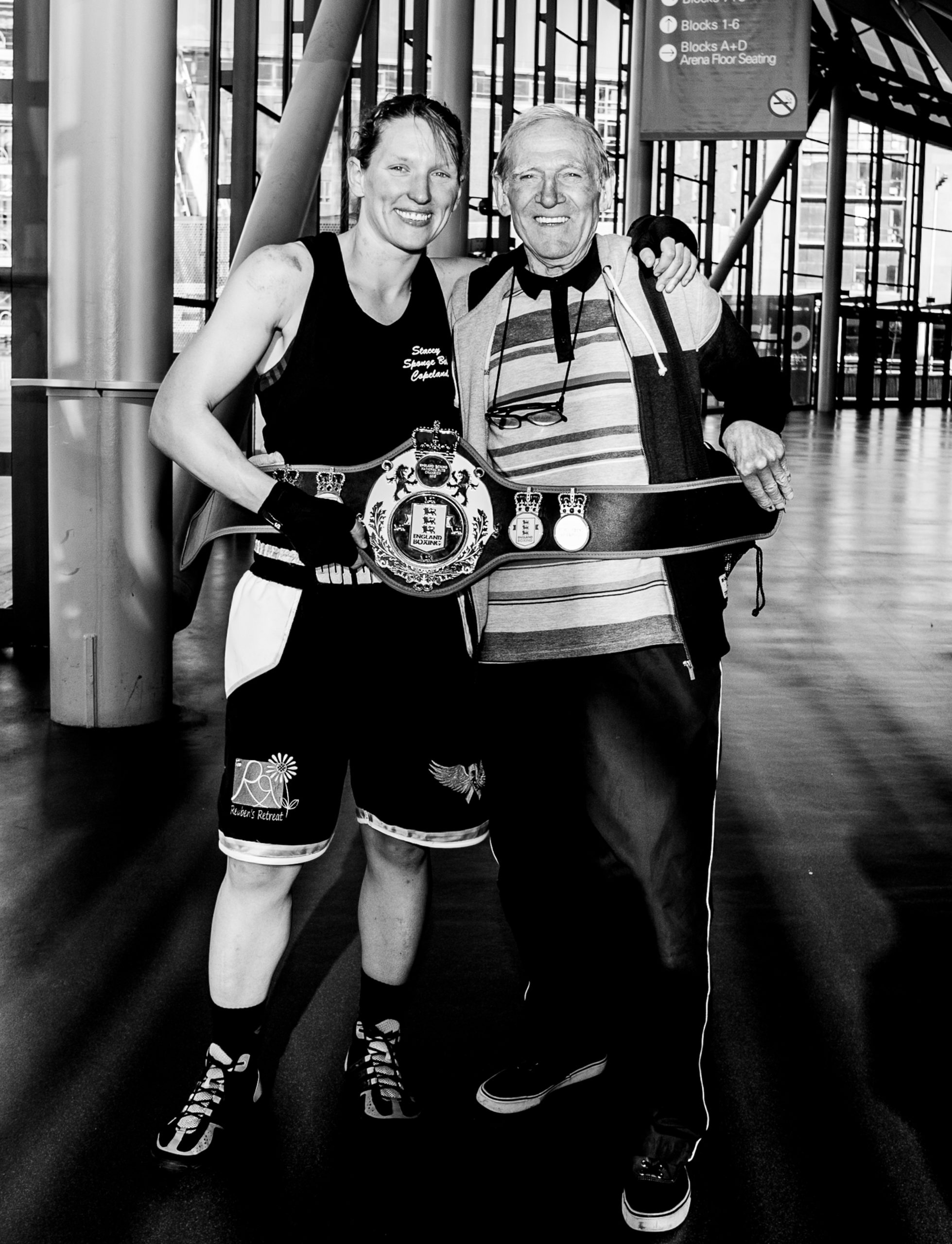
Since launching, Pave The Way has become a huge success. As part of the project, Stacey has organised a number of events in the Greater Manchester area, including an inspiring week of activities for teenage girls as part of Women’s Sport Week. She has also organised career days, aimed at showing girls that they can do whatever job they want, with women guest speakers from traditionally male-dominated industries, from scientists to pilots. In one local news video about one of these career days, a young school girl called Malika describes how valuable events like these are. “Today, I’ve learnt to have higher standards for myself, have more confidence, and not put myself down,” she said. On top of all this, Stacey has given more than 100 talks in schools or community groups, and also delivered a TEDx Talk last year about the project.
Ultimately, Stacey’s work at Pave The Way is all to ensure that young people don’t face the same barriers that she did by challenging outdated gender stereotypes. It is about bringing about a positive impact, which goes beyond sport. “We know that sport is one of the most powerful things for creating change, so what happens in sport can manifest in other areas of society,” she said.
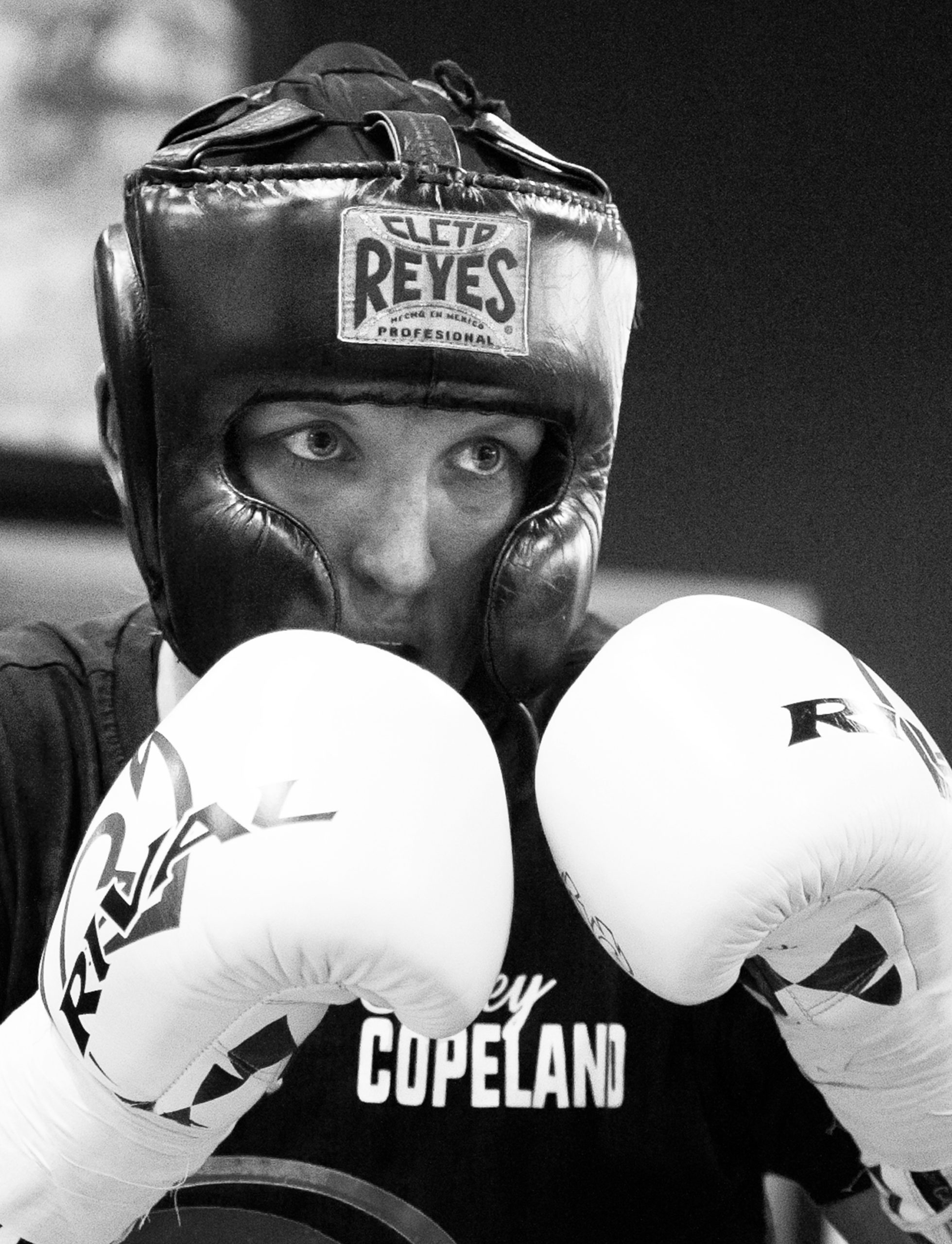
Heartwarmingly, she credits her two nieces for inspiring her to do what she does. “I want things to be much better for them, as they’re growing up as young women, than they were for me,” she explained. “I also want to go back to my younger self and be sure that I’ve done everything that I can to make things better for the next generation.” Role models are an important part of this. “I didn’t have those role models,” Stacey added. “I think it would have made not just a big difference to me, but to the other children at school.”
When it comes to the progress of women’s sport in her lifetime, Stacey is unfalteringly positive. “If we look at women’s sport and what we’ve achieved in such a short time, given the barriers we’ve had, it’s incredible,” she said, highlighting the successes of the Women’s World Cups, and the Women’s Super League (WSL) in the UK. That is, as Stacey pointed out, before we even look at women’s boxing: “In my lifetime, I’ve been able to win a European silver medal for my country, and I’ve been able to win the Commonwealth title as a professional,” she added.
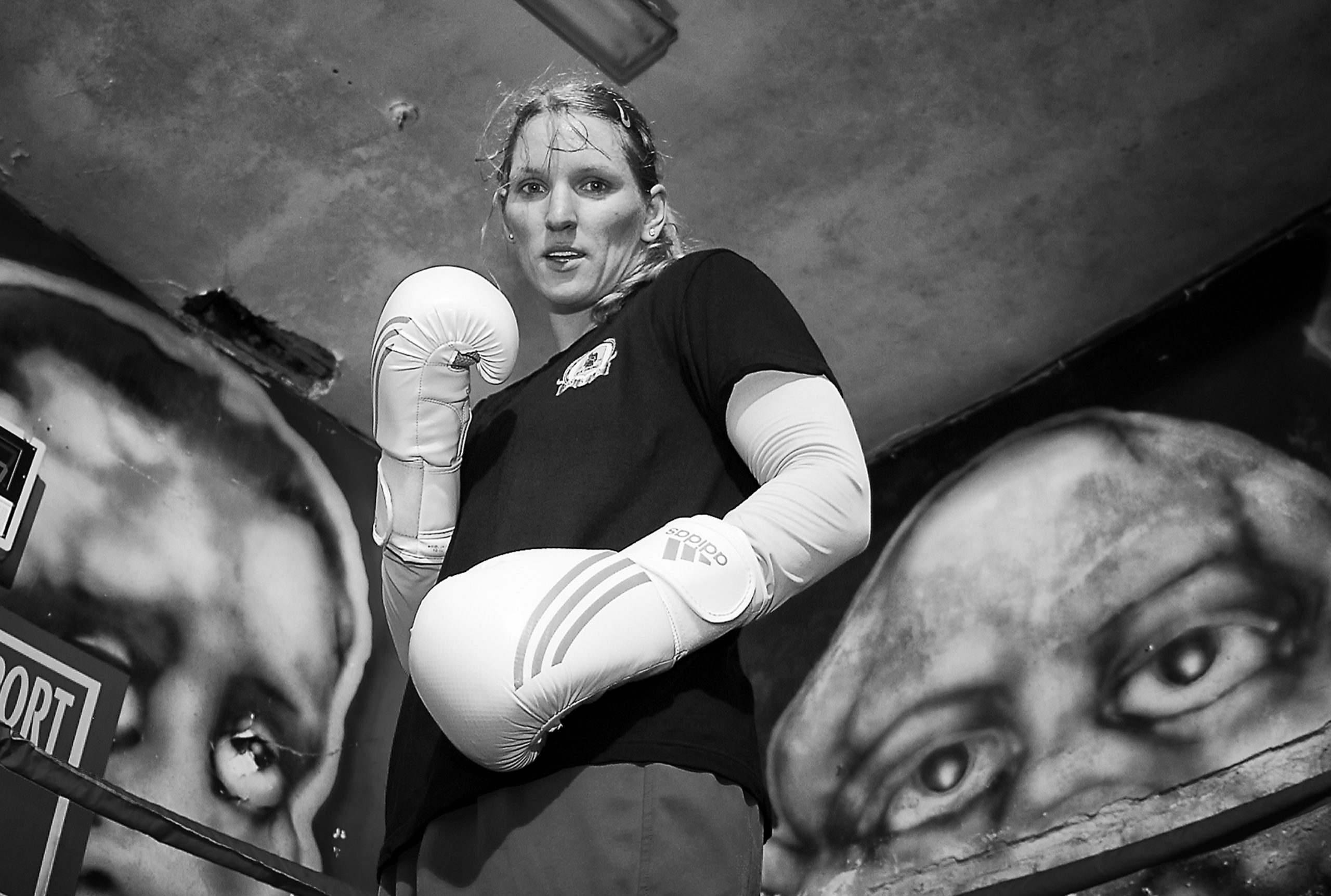
Her work has not gone unnoticed. In 2018, she won the Women’s Sport Trust’s Individual Sporting Role Model award. “That meant a lot to me because I came from a position where I was ridiculed and mocked and looked down on. To go from that point to being celebrated and recognised was massive for me,” said Stacey of winning the accolade. Since then, she has worked as an ambassador for the Women’s Sport Trust, a role which she cherishes because of the support she receives from both the Trust and other athletes who take part in its campaigns.
But Stacey is (quite literally) a fighter – and she’s got some ideas for how to keep the progress going. For her, “equity is crucial for equality”. And, by this, she doesn’t just mean equal pay. “We have to think: have those athletes got access to sports scientists, nutritionists, psychologists, strength and conditioning coaches, excellent facilities, recovery facilities?” she said. “Then, beyond that, marketing – is there an adequate marketing budget? Have we got media coverage? Have we got outlets that are going to put it on television? It’s a massive, massive, multifaceted package.”
Outside of Pave The Way, Stacey is a member of the support staff team at a school two days a week. She has had to work throughout her sporting career, which again demonstrates the financial gap faced by female athletes. Alongside this, she presents ‘The Dead Good Show’ on BBC Radio Manchester – a job she loves because she gets to listen to “people’s everyday inspirational stories”, from holiday hiccups to raising awareness of Childhood Cancer Awareness Month.
When it comes to the future of women’s sport, Stacey is incredibly optimistic in her no-nonsense approach. “When we look back at where we’ve come from, and how far we’ve come, we now have so much more at our disposal.” She highlighted how social media has become a “massive catalyst” for positive change, too, while the research that is going into female athletes will mean they are “only going to get better and better as athletes,” she affirmed.
The sky’s the limit, it seems. “For tonnes of reasons there is nothing to stop this incredible machine and movement of phenomenal female athletes. It’s just going to get better and better and better,” she added. We completely agree.
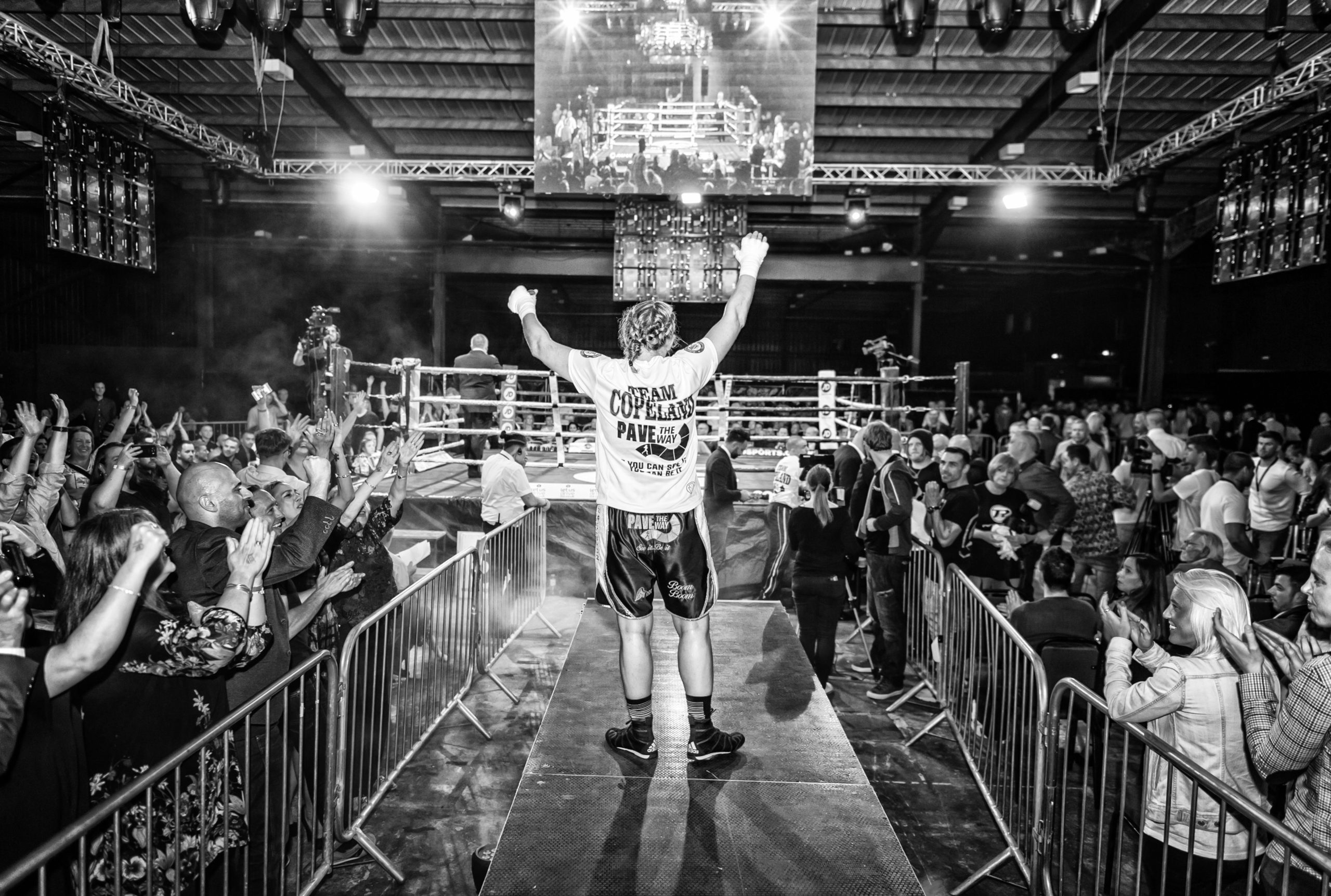
Editorial Design Root
